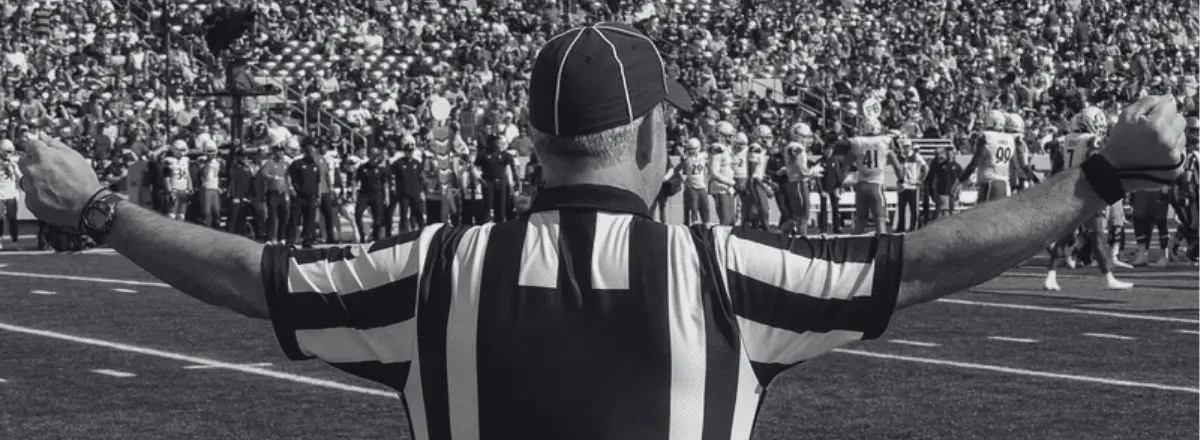Arguments for and against Alabama sports betting usually follow the same formula. But state Senator Greg Albritton recently delivered a unique spin from the pro-gambling camp.
He believes that sports betting in Alabama could generate $1 billion per year. Correct: That is “billion” with a “b.”
What is Senator Albritton’s reasoning? Are his projections accurate? Overstated to make a point? And most importantly, could this have any impact on future sports gambling discussions in Alabama as we inch closer and closer to 2024 legislative sessions? Let’s get into it all.
Senator Albritton Won’t Put a Cap on Alabama Sports Betting Potential
At first blush, filing Alabama under the “potential billion-dollar sports betting market” seems overaggressive. Though betting on college football is bound to garner a ton of action thanks to interest in the Alabama Crimson Tide, we’re not talking about an especially massive reason. There are no pro sports teams in Alabama, and the state checks in at a modest 24th out of 50 states in total population. This suggests that limitations should be placed upon The Yellowhammer State’s sports betting revenue possibilities. And yet, on the flip side, Senator Albritton doesn’t think anyone should put a cap on what this market can do. Consider his sentiments, via CBS 42 in Birmingham’s Maddie McQueen:
“State Senator Greg Albritton knows some people travel to Mississippi or Tennessee for sports betting but isn’t sure how much money the state loses on it. However, Albritton says with a comprehensive plan some lawmakers want to implement, the state could see up to one billion dollars in revenue. ‘A comprehensive plan that will take in all forms of betting and gaming, gambling of all sorts throughout the state that would control it, regulate it, cap it, tax the devil out of it,’ says Albritton.”
To some extent, this is the argument all Alabama sports betting supporters make. Backers are quick to point out that residents already gamble on sports. It might not be in-market, but one way or another, they can visit retail locations or place wagers with online sportsbooks in the United States.
Still, even the most vocal supporters typically refrain from attaching a specific number to possible revenue. Senator Albritton choosing to use the “b” word is a pretty big deal. But is it realistic?
Finding a Comparison for Potential Sports Gambling Revenue in Alabama
As McQueen outlined in her piece for CBS 42, Alabama doesn’t know how much tax revenue they’re losing without sports betting. Similarly, they can’t actually know how much they stand to make. There’s no real way to remedy this. Studies can be conducted. Experts can weigh in. But the only way to know, for sure, how much sports betting revenue Alabama can generate is to actually legalize it.
Nevertheless, it’s possible to ballpark expectations by looking at comparable markets. In this case, sports betting in Kansas may be a good proxy. While their population consists of roughly two million fewer people, their pro sports market is similarly limited.
Online sports betting in Kansas officially rolled in September 2022. This means the state has offered it for roughly one year. During that time, Kansas has accepted $1.85 billion dollars in total bets. That would seem to bode well for Senator Albritton’s proclamation about Alabama. They have a population of just over 5 million people, compared to the estimated 2.9 million in Kansas.
However, this is where context becomes incredibly important. If Senator Albritton was referring to Alabama’s sports betting handle (i.e. the total amount spent by bettors), then he’s absolutely spot on. But the sports betting handle is not akin to revenue. Sportsbooks still have to pay out winning wagers. The money left over from those expenses would be considered profit. And from there, only a percentage of that money would be given to the state, in the form of a tax.
Let’s get back to Kansas sports betting. After factoring in payouts for winning wagers, Kansas sportsbooks raked in a hair over $166.4 million in total revenue. Based on the state’s current tax rate, around $7 million of that money went directly to Kansas.
Now, let’s assume Alabama generates an identical revenue-per-capita figure. Based on their population, The Yellowhammer State could expect to take home around $12.1 million per year in sports betting tax revenue.
Will Senator Albritton’s Projections Move the Needle for the Future of Alabama Sports Betting?
So, as you can see, Senator Albritton’s comments were neither off-base nor entirely accurate. Alabama absolutely has the potential to be a billion-dollar sports market. In fact, if Kansas residents spent almost $1.9 billion on sports gambling, Alabama could probably brace for upwards of a $3 billion-per-year sports betting handle.
Like we outlined above, though, this is different from saying Alabama will earn a billion dollars per year from sports betting. Only a handful of markets in the United States are equipped to generate that much tax revenue on an annual basis—and you can count them on one hand.
Senator Albritton was more likely trying to illustrate how intense the general interest in Alabama sports betting could be among state residents. And he’s not wrong on that front. Whether his framing impacts how the next round of sports betting debates unfolds remains to be seen.
The state has now failed on numerous occasions to advance sports betting bills. Plenty of officials still see legal sports betting as a predatory practice. Alabama is also one of five states without a lottery, and many lawmakers don’t want to create one just to facilitate the arrival of sports gambling.
Of course, sentiment can always change. Alabama continues to talk about the prospect of sports betting. That matters by itself. Perhaps Senator Albritton’s stance will help push the issue over the approval hump. Or maybe not. We’ll know more this coming winter.
Take a look at this list of the top online sportsbooks so you can find one that works for all of your sports betting needs:
-
EXCLUSIVE BONUS
 50% bonus up to $250Play Now
50% bonus up to $250Play NowT&C apply, 18+, Play responsibly
- EXCLUSIVE BONUS
 125% up to $1,250Play Now
125% up to $1,250Play NowT&C apply, 18+, Play responsibly
- EXCLUSIVE BONUS
 225% up to $3,625Play Now
225% up to $3,625Play NowT&C apply, 18+, Play responsibly
-
 50% bonus up to $250Play Now
50% bonus up to $250Play NowT&C apply, 18+, Play responsibly
-
 125% up to $2,500Play Now
125% up to $2,500Play NowT&C apply, 18+, Play responsibly












